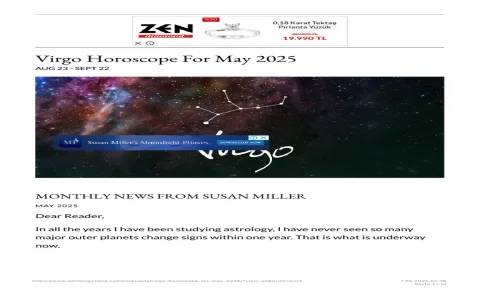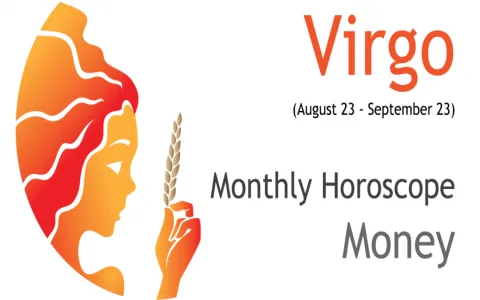The Moment I Dug Up That Old Mess
I have to start this off by saying I am absolutely not some crystal ball guru. I’m a practical guy. I track metrics, not moons. But last month, I was completely stuck. My whole career situation felt like it was spinning its wheels in mud. I was stressed out, overworked on projects that went nowhere, and seriously considering just quitting the industry altogether. I needed a sharp angle to break the rut, and honestly, traditional planning methods weren’t doing it.
My trigger was ridiculously mundane. I was cleaning out the storage room (a nightmare chore I’d been putting off for months, standard Virgo avoidance behavior, ironically). Tucked deep into a dusty box of old files, I discovered a printout. It was my detailed Virgo career horoscope for 2019. I distinctly remember getting it, reading it quickly during a coffee break five years ago, nodding along, and then stuffing it away because I was “too busy.”
I sat down right there on the dusty floor and read every single paragraph. Now, 2019 had been a real pivot point for me—a year of missed chances and frustrating near-hits. My instant thought wasn’t, “Wow, did the stars predict this?” My thought was, “The basic advice in here sounds exactly like the advice I needed five years ago but completely ignored.” This wasn’t about prophecy; this was about identifying patterns of my own failure, using the horoscope as a weird, time-capsule performance review.
I grabbed a notebook and started breaking down the 2019 reading into three core themes the text kept hammering on. This was Phase 1.
Phase 1: Decoding the 2019 Missed Opportunities
I didn’t care about Pluto’s alignment; I cared about the tangible actions it recommended. I isolated the three major professional recommendations the 2019 text insisted upon, and then I benchmarked them against what I actually did that year.
- Theme 1: The Call for Niche Mastery. The reading strongly advised spending Q1 and Q2 2019 “honing one precise skill to the exclusion of all others.” Did I do it? Absolutely not. I frantically bounced around three different toolsets that year, trying to be good at everything, which meant I was great at nothing. I wrote down: Failed to specialize.
- Theme 2: Required Networking and Collaboration. It warned against “retreating into isolation” and stressed that “professional breakthroughs arrive through new alliances.” In 2019, I was dealing with a stressful commute and totally shut myself off from industry meetups. I declined every LinkedIn connection request that seemed even remotely outside my immediate circle. I noted: Isolation prevented necessary growth.
- Theme 3: Documentation and Structural Integrity. There was a specific mention of late 2019 requiring “meticulous organization to capitalize on an impending leadership shift.” I remember that shift perfectly. A senior manager left. I was next in line, but my project documentation was a mess, and my handover notes were incomplete. I lost the opportunity to a colleague who, frankly, was better organized. I concluded: Lack of structure cost me leadership.
By the time I finished, I wasn’t just looking at old astrology; I was looking at a perfect map of my professional shortcomings, highlighted and underlined by an archived third party. The historical data didn’t lie. I had been given the focus areas and botched the execution.
Phase 2: Implementing Historical Corrective Action Today
The real work started here. I realized my stuck feeling in 2024 wasn’t about new problems; it was a repetition of those same old 2019 Virgo failure modes: trying to do too much, isolating myself, and failing on basic structure.
I took the failure points and flipped them into a two-week action plan:
First, I tackled Theme 1 (Specialization). I slammed the door shut on learning any new general skills. I identified the single most high-value technical skill my current job required—advanced cloud automation—and I committed every spare hour for five days to becoming proficient in that one area. I built out a specific portfolio piece just showcasing that automation capability. No distractions.
Next, Theme 2 (Networking). I hate cold outreach, but I knew I had to push through the isolation. I set a rigid target: initiate three meaningful professional conversations a week. I used some online forums and virtual industry events. I didn’t just passively listen; I asked specific questions and followed up with emails offering to share resources. It was painful, but I powered through the social anxiety.
Finally, Theme 3 (Structure). This was quick and dirty. I pulled every existing project file I had on my desktop. I spent two full days building clear, labeled, comprehensive documentation for my current work stream. I designed a structure so sound that if I got hit by a bus tomorrow, a replacement could pick up my progress without asking a single question. It felt tedious, but it was necessary house-cleaning.
The Payoff: Opportunities Emerge When Structure Kicks In
Here’s the thing: within three weeks of executing that corrective plan—which was entirely based on advice I ignored five years ago—things changed fast. It wasn’t magic; it was just me finally being prepared.
One of the contacts I made during that forced networking push reached out. Her team was urgently looking for someone with exactly that specific cloud automation skill I had just spent five days refining. They weren’t looking for a generalist. They were looking for the niche expert I had just forced myself to become.
I went through the interview process, and for the first time in years, I wasn’t scrambling. I presented my focused portfolio piece. And because I had spent those days cleaning up my documentation habits, I was able to articulate my processes with flawless clarity during the technical deep dive.
I secured that opportunity—a much better role, higher pay, and exactly the specialization I needed to advance. The lesson I walked away with isn’t that I need to subscribe to daily horoscopes. The lesson is that the blueprint for success is often sitting right there in front of you, masked as generalized advice. I had to dig up the old evidence of my own mistakes, analyze the pattern, and then finally force myself to execute the necessary structural changes today. Don’t waste your old data; sometimes the key to better opportunities is fixing the fundamental problems you already ignored once.








